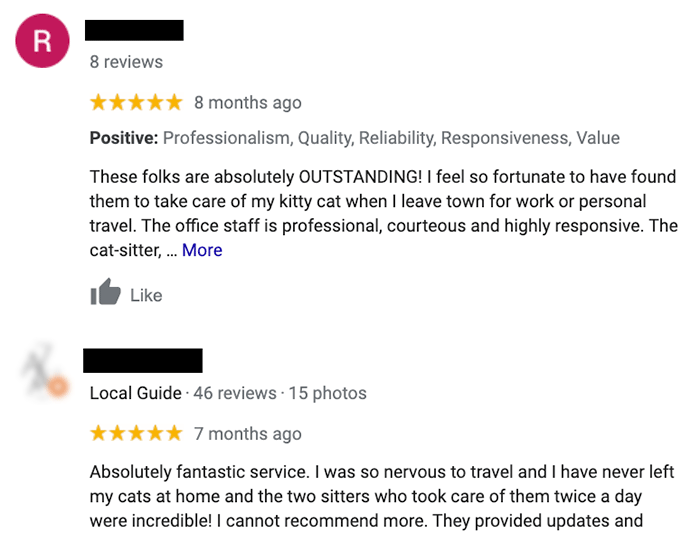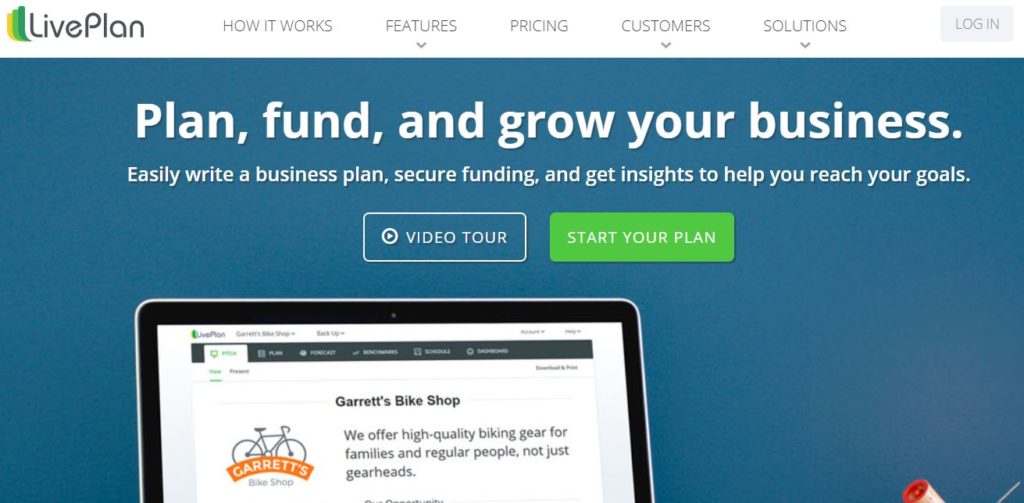Disclosure: This content is reader-supported, which means if you click on some of our links that we may earn a commission.
More than ever, young people are starting businesses. We’ve long since passed the days when starting a business in college was an outlier. Coming up with strong ideas that will launch a profitable business is more important than ever.
The life of a college student is hectic. While there may be some free time, most students have a full plate of work, classes, homework, and socializing. Starting an independent business with the right business idea can make a student’s crazy schedule easier to manage because it’s more lucrative and flexible than most part-time jobs. It’s also a great way to build a solid foundation for the future.
Finding the right business idea in college can be tough because founders and inventors still in school often don’t have enough real-world experience or connections to get investor funding, anticipate urgent pain points, or recognize whether their ideas are viable. This can lead to products that aren’t practical, wasted energy and time, and administrative and legal complications.
Why College Business Ideas Are So Important
There are many benefits to starting a business while pursuing a college degree. It’s a chance to earn extra income with flexible hours. Running a business offers professional experience and a chance to try out different niches and industries. College can be challenging for hands-on learners, and starting a business in college provides an opportunity to apply the theories and ideas that come up in the classroom.
26% of entrepreneurs start two or more businesses in their life. With each business, owners and founders learn new tools and strategies that contribute to future success. A classroom can be the best place to test a risky idea. Coming up with business ideas in college isn’t a strategy for leaving school early; it’s an opportunity to make the most of your college investment. A college campus is also a great place to build a business toolbox.
College startups offer an opportunity to hone skill sets that may be useful in the future. For example, if your business ideas are primarily mobile apps, you may want to take computer science classes to learn how they are made (not necessarily to make them yourself). Relevant college courses that relate to your business ideas can provide a better foundation for communication with your future team and help you set realistic expectations for your industry.
Learning new skills can also connect you to people who share your passion and help hone your business ideas. Starting a business in college can also make it easier to narrow your sights on the right job after graduation.
Even better, students have access to heavy discounts to set up technology for a new business. Colleges may offer copying and printing services, free Wi-Fi, extensive libraries, and private online resources that make it easier and less expensive to launch a business. And there’s no better place than a college campus for word-of-mouth advertising.
How To Develop Business Ideas As a College Student
42% of startups fail because the business idea isn’t something customers need. Instead of running with any business idea while in college, focus on the right one.
When you’re trying to find the perfect product to sell, there are three questions that you should ask:
- What do people need?
- What do you love?
- What do you know?
Let’s dive into each of these further.
1. What do people need?
Start with your daily life and any problems you run into regularly. Many of these problems won’t seem like a big deal, like the fruit you buy at the grocery store molding before you can eat it. But you aren’t the only one to encounter it. You could invent or find a dropshipped product that can slow the molding process and keep your fruit fresh to solve this problem. Or maybe you want to address financial planning and budgeting for students with an app.
As you’re looking for problems to solve, think about the industries the problem relates to and other related problems. Then keep brainstorming about what manufacturing and development might look like or the supply chain.
It might feel like these concerns are too complex to worry about yet. Still, if you plan to start a business while in college, you’ll soon realize that thinking about any new ideas from every possible angle is necessary for success.
Excellent planning can cut down on risk, open up exciting avenues for growth, and help build the relationships any startup needs.
The problem you aim to solve does not need to require a product. Perhaps you encounter an issue of time, such as needing someone to walk your dog during the day while you work.
Other examples of business ideas that may solve a problem include:
- App development
- Dog walking
- Virtual assistant
- Tech support
- Affiliate marketing
When looking for problems to solve, involve others. Ask friends or family members what daily issues they’d like to fix, mitigate, or solve. Research what people search for or buy online and what issues they aim to solve or prevent.
2. What do you love?
Another great source for business ideas is your hobbies and passions. The business idea will connect to the communities you are already part of. The challenges and pain points will be easy for you to understand because of your experience and expertise.
Launching a business is more than making money. It’s easy to bail on a struggling business when it’s not a passion project, so coming up with original ideas is a better strategy than pulling from a list of someone else’s college business ideas.
The right business for college students won’t just turn a profit. It will be a mission to dedicate significant time and energy to. Maybe you made memes for fun in high school. You could build a business in social media management in college. Find an area you already have relevant experience in and turn it into a service you can offer for profit. Other passion-based business ideas might be:
- Creating or testing video games
- Starting a blog
- Running a podcast
- Editing term papers
- Tutoring
- Creating crocheting, knitting, or sewing patterns
- Logo and graphic design
Think about the things you already enjoy and see if there’s a way to turn that into a profitable venture.
3. What do you know?
For some, the first step toward a new business idea will pop up while on campus. For example, suppose you were at a career fair and noticed that students asked for assistance with grad school applications or career advice. In that case, you might think about creating a career consulting and application review service for students on campus.
There are a ton of business ideas that would work at any college or university. Make the most of college connections, classrooms, and concerns. These business ideas can work on any campus:
- Tutoring/teaching
- Event planning
- Personal training or exercise classes
- Moving and packing services
- Lawn care/landscaping
- Painting and general handyman services
Consider what you already know how to do and who you know that may be looking for help. Use these answers to identify where you can make a difference.
Quick Tips To Improve & Refine Your Business Ideas
Whether you’re just starting or have been playing with business ideas for a while, these quick tips can help you hone your loose thoughts into a tight business idea to start while in school.
Find a niche
No matter what business idea comes out on top, there will be stiff competition. In addition to popular local businesses, any new company will compete with a rapidly growing online market.
It may seem counterintuitive, but the most effective way to grow an audience for a new business is to select a small and specific segment of people to market to. For a baking business, this might mean limiting baked goods to custom-decorated cookies or wedding cakes. For a personal trainer, focus on a specific type of exercise or a single type of fitness you excel at, like strength training for endurance runners.
Every industry can benefit from innovative ideas, and the deeper you go into an area of interest, the more potential problems and solutions will rise to the surface.
Ask a mentor
An excellent resource for college business ideas is the campus community. College is typically a moment where there is more time to try new things, meet new people, and learn from experts in different areas of study.
These qualities make any college campus a hotbed of exciting and valuable business ideas. Set up an appointment with a mentor or professor on campus, organize a meeting with like-minded friends to brainstorm ideas, or set up a spot on campus that’s ideal for meeting new people and collect their opinions about your latest product ideas.
If you can find an expert or professor in the field of your general business ideas, having a mentor can be extremely valuable for first-time entrepreneurs.
Read reviews
If you have a niche but haven’t settled on “the” business idea yet, start reading product or service reviews in your area of interest. You’ve probably had multiple “Aha!” moments scanning reviews in the past but didn’t write your ideas down because you were too busy shopping!
Reviews are also a great resource to refine and develop an idea that’s still in progress. Learn from someone else’s mistakes before investing your time and energy in a new college business.

Be sure to look at negative reviews, too. As you read through what actual users and customers have to say about products and services in the area you’re interested in, you’ll see where companies are doing things well and where there is a problem to solve or a challenge that needs addressing. Researching user experiences is part of a broader concept called market research, which includes identifying pain points.
Long-Term Strategies for the Right Business Ideas for College Students
While the above tips are things you can start doing right now to come up with business ideas, these tips and strategies are looking to your long-term success.
Practice giving and receiving feedback
Students in creative majors get a lot of practice taking criticism since most writing and visual arts classes focus on making projects and participating in classroom critiques. Most other majors don’t get as much of this experience, but it’s essential to learn how to accept and use critical feedback on your ideas, especially if they have significant personal meaning.
Criticism can be tough to take and sometimes our emotional responses to criticism can overpower the value of the critical input that we receive. Try to remember that anyone offering feedback is a potential future customer. There’s a good chance that anything that you’re hearing in a critique will come up again once people are paying for your products.
Practice giving constructive criticism and asking for it back from others on your ideas, business plan, and more. Don’t get defensive. Instead, reflect on the feedback and see if it makes sense with what you’re trying to build and accomplish.
Remember, just because you receive feedback does not mean that you’ll implement all of it. Think critically about all feedback and criticism you receive and identify what makes sense to use and what doesn’t.
Come up with a business plan
Do you want your new business to last beyond college, or is it just something for right now? Starting any business is a commitment, so it’s smart to think about the long-term costs and benefits of each business idea.
As you evaluate each of your business ideas, ask yourself:
- What will it take to scale? (tools, resources, labor, etc.)
- What are the risks?
- Will you need to hire help to make it work?
- Does the idea require skills and knowledge you don’t have yet?
- What kind of funding will the idea need?
As you are getting ready to launch your new business, take the time to write a real business plan. Business plans include details like your market research, your specific products and/or services, your sales and marketing strategies, your plan for funding and investments, and more. You may not think you need one yet, but having a detailed business plan increases your chances of success with your new company.
You can use business plan software to assist in this step. A great software we recommend for beginners is LivePlan. LivePlan will walk you through the entire business plan process piece by piece, and even includes templates so that you aren’t starting from scratch. With the tutorials and support for first-time business owners, you can’t go wrong with LivePlan.

LivePlan’s Standard package is just $15 per month and includes step-by-step instruction, a pitch builder, over 500 sample plan templates, financial forecasting, and financial statements. Plus, it comes with a 60-day money-back guarantee.
Start small and grow slowly
An initial great idea doesn’t always lead to a great business. What can seem like tiny details in the planning process can have a significant future impact on the product, marketing, and sales. Take some time to experiment and test ideas before jumping on your first inspiration.

The right business idea for a college student like you won’t be the best business idea for everyone. A valuable business idea should be fit for your unique skills and abilities. It should be something you can create and run in the extra time you have available during the school year and holiday breaks. You’ll also want it to be something you enjoy or care about enough that you will put your business ahead of the friends and activities outside of school that are also vying for your time and attention.
When a business sees early success, it can feel like every moment should go toward growing the business. But if your business idea gets big too fast, you’ll be unable to balance school and work, and both will suffer. Look for ideas with growth potential that you can start small, like a t-shirt business on campus. As school becomes less demanding and your marketing and business operations skills improve, you’ll find the right time to add new products, expand to other campuses, or start utilizing social media.
Next Steps
As you start coming up with business ideas, this guide for starting a business for under $100 will walk you through creating a business plan, naming your business, and setting up hosting and a domain name.
The most budget-conscious way to launch a new business is to start an ecommerce site. This simple guide, How to Start an Online Store and Make Your First Sale, has everything you need to start selling with your new business idea!
And after launching your business, don’t sit on branding! Here is a guide to building your brand and why it is your most powerful marketing tool.




